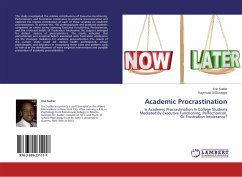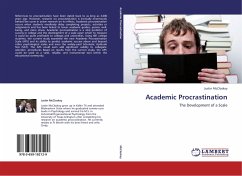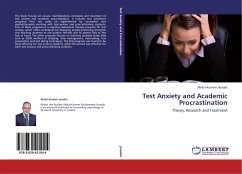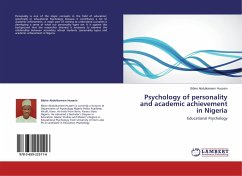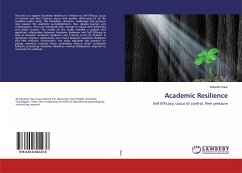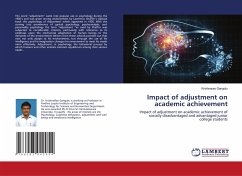This study investigated the relative contributions of Executive Functioning, Perfectionism, and Frustration Intolerance to academic procrastination and explored the relative contribution of each of these variables on academic procrastinators. To achieve this, 150 undergraduate and graduate students completed an online survey assessing Executive Functioning, Perfectionism, and the irrational beliefs of Frustration Intolerance. No support emerged for distinct clusters of procrastinators. The results indicated that perfectionism and irrational beliefs associated with frustration intolerance are the strongest mediators for academic procrastination. The results of the current study could aid mental health professionals, school psychologists, and educators in recognizing these traits and patterns early as well as in the development of more targeted interventions and possible prevention of academic procrastination.
Bitte wählen Sie Ihr Anliegen aus.
Rechnungen
Retourenschein anfordern
Bestellstatus
Storno

